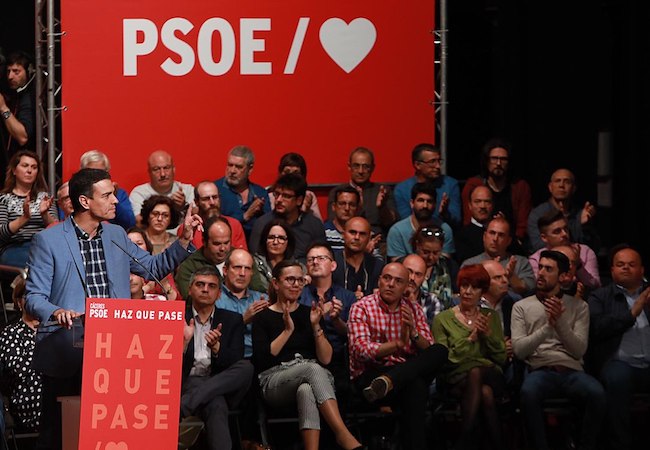
Spain’s new governing coalition seems trapped like a bull between two banderilleros. A series of four general elections in the past four years including two rounds in 2019 alone- have produced fragmentation and instability in the parliamentary Cortes. After the most recent ballot, incumbent Pedro Sanchez and his Socialist party came in first place with a meager 28% of the vote. Unlike in previous elections, Sanchez quickly reached a coalition agreement with the far-left Podemos party. However, the coalition also plans to join with the Republican Left of Catalonia (ERC), a Catalan nationalist party. In order to keep his majority, the prime minister will have to make unpopular concessions to his governing partners. The new coalition provides Sanchez with little room to make significant policy strides on either Catalonia or economic issues.
Regardless of how he handles Catalonia, this issue will threaten to bring down Sanchez’ government. On one hand, his governing majority must make concessions to the Catalan nationalist movement. To maintain support from ERC, Sanchez has considered offering formal negotiations with the Catalans. Such talks could potentially lead to an approved independence referendum or amnesty for imprisoned Catalan nationalists. Sanchez needs to deliver something to the Catalans, or else ERC will withdraw support for his coalition and force yet another round of elections. Podemos has also expressed substantive backing for the Catalan separatists, further increasing the pressure on Sanchez to legitimize the independence movement. Due to upcoming internal elections in Catalonia, ERC has incentives to take a hard line with Madrid. In order to keep his governing coalition alive, Sanchez must make meaningful concessions to the Catalan movement.
However, Sanchez’ attempts at reconciliation could significantly weaken his party’s prospects in future elections. Recent polling suggests that 56% of Spaniards support prosecution of the Catalan nationalist leaders. Opposition to sectionalism played out in last month’s elections, when rightist anti-Catalan parties such as Vox gained significant seats. These electoral constraints would penalize Sanchez and the Socialists for making concessions to Catalonia. If he fails to compromise with the Catalan nationalists, his coalition government will collapse. However, if Sanchez does reach agreement with the Catalans, his polling will plummet and he could lose power in the next round of elections. In short, the Catalonia issue will vex the prime minister no matter what policy decisions he makes.
Sanchez faces a similar double bind in terms of economic policy. In order to keep his coalition alliance with Podemos, the new government will need to tack to the far-left. Some of Podemos’ potential proposals include taxes on multinational corporations and an increase of the minimum wage. Sanchez has little room for negotiation here- he must implement these policies or else his agreement with Podemos will shatter. However, once again, the policies needed to hold his coalition together could prove damaging with the broader electorate. Spain’s economic recovery remains tenuous. Despite some continued growth, the 14.2% unemployment rate lags all EU countries except for Greece. An increase in minimum wage could send this unemployment rate even higher- which would hurt the Socialists’ approval ratings. Once again, on economic policy Sanchez faces the unpalatable choice of appeasing his coalition partners at the expense of his general popularity.
Overall, the prospects for this new coalition appear unpromising. In fairness, there is precedent for a similarly designed coalition having some success. Portugal also has a coalition between a center-left party and smaller far-left partners, the “contraption” coalition. This Portuguese government has managed to govern with stability since 2015 and surged to reelection in October. However, Sanchez faces greater challenges than his Iberian neighbors because Portugal has nothing comparable to the Catalan separatist issue. This challenge limits Sanchez’ flexibility and gives fuel to the opposition. If the coalition does stumble, another round of elections could prove fatal for Sanchez. The far-right Vox party capitalized on antipathy to the Catalan separatists in November’s ballot, and would likely see another bump in a next round of polling. Meanwhile, after failing to form sturdy governments despite consecutive electoral victories, the Socialists would have a hard time making the case for a third chance. If this inauspicious coalition does indeed fail, it could herald a return to power for the Spanish right wing.




